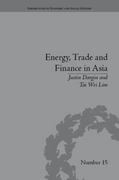Question
Question three In April, 9.4 million persons reported that they had been unable to work because their employer closed or lost business due to the
Question three
In April, 9.4 million persons reported that they had been unable to work because their employer closed or lost business due to the pandemicthat is, they did not work at all or worked fewer hours at some point in the last 4 weeks due to the pandemic. This measure is down from 11.4 million in the previous month. Among those who reported in April that they were unable to work because of pandemic-related closures or lost business, 9.3 percent received at least some pay from their employer for the hours not worked, little changed from the previous month. Among those not in the labor force in April, 2.8 million persons were prevented from looking for work due to the pandemic. This measure is down from 3.7 million the month before. (To be counted as unemployed, by definition, individuals must be either actively looking for work or on temporary layoff.) These supplemental data come from questions added to the household survey beginning in May 2020 to help gauge the effects of the pandemic on the labor market. The data are not seasonally adjusted. Tables with estimates from the supplemental questions for all months are available online at www.bls.gov/cps/effects-of-the-coronavirus-covid-19-pandemic.htm.In April, 9.4 million persons reported that they had been unable to work because their employer closed or lost business due to the pandemicthat is, they did not work at all or worked fewer hours at some point in the last 4 weeks due to the pandemic. This measure is down from 11.4 million in the previous month. Among those who reported in April that they were unable to work because of pandemic-related closures or lost business, 9.3 percent received at least some pay from their employer for the hours not worked, little changed from the previous month. Among those not in the labor force in April, 2.8 million persons were prevented from looking for work due to the pandemic. This measure is down from 3.7 million the month before. (To be counted as unemployed, by definition, individuals must be either actively looking for work or on temporary layoff.) These supplemental data come from questions added to the household survey beginning in May 2020 to help gauge the effects of the pandemic on the labor market. The data are not seasonally adjusted. Tables with estimates from the supplemental questions for all months are available online at www.bls.gov/cps/effects-of-the-coronavirus-covid-19-pandemic.htm.In April, 9.4 million persons reported that they had been unable to work because their employer closed or lost business due to the pandemicthat is, they did not work at all or worked fewer hours at some point in the last 4 weeks due to the pandemic. This measure is down from 11.4 million in the previous month. Among those who reported in April that they were unable to work because of pandemic-related closures or lost business, 9.3 percent received at least some pay from their employer for the hours not worked, little changed from the previous month. Among those not in the labor force in April, 2.8 million persons were prevented from looking for work due to the pandemic. This measure is down from 3.7 million the month before. (To be counted as unemployed, by definition, individuals must be either actively looking for work or on temporary layoff.) These supplemental data come from questions added to the household survey beginning in May 2020 to help gauge the effects of the pandemic on the labor market. The data are not seasonally adjusted. Tables with estimates from the supplemental questions for all months are available online at www.bls.gov/cps/effects-of-the-coronavirus-covid-19-pandemic.htm.
1. To better see a football game, one spectator stands. Assuming that everyone trying to get a good view of the game can also stand represents an example of the
2. The post hoc fallacy is the error of reasoning
3. You are not surprised that it has started to rain. After all, a hour ago you just finished washing your car. Your reasoning is an example of
4. The post hoc, ergo propter hoc fallacy is
5. A rooster crows and then the sun rises. The rooster thinks that the sun rises because he crows. And he is very proud of it. The rooster falls prey to
6. A rooster crows and then the sun rises. The rooster thinks that the sun rises because he crows. And he is very proud of it. The rooster falls prey to
7. "Every time I go to a basketball game, our team wins." This statement is an example of
8. An economic expansion follows a stock market boom. A cautious economist would not claim that the stock market caused the expansion because the economist wants to avoid
9. Most economists agree that
10. The fact that wants cannot be fully satisfied with available resources reflects the definition of
Step by Step Solution
There are 3 Steps involved in it
Step: 1

Get Instant Access to Expert-Tailored Solutions
See step-by-step solutions with expert insights and AI powered tools for academic success
Step: 2

Step: 3

Ace Your Homework with AI
Get the answers you need in no time with our AI-driven, step-by-step assistance
Get Started


